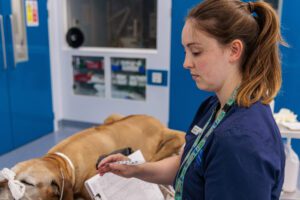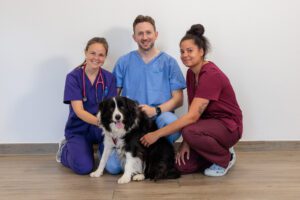Objective
To report clinical, radiographic, and arthroscopic findings in dogs with thoracic limb lameness attributed solely to disease of the medial aspect of the coronoid process (MCP)
Study design
Case series
Animals
Dogs (n=263) with MCP disease (MCD; 437 elbows)
Methods
Clinical records (January 2000-July 2006) and radiographs were reviewed and pertinent data recorded. Radiographic interpretation included measures of periarticular osteophytosis, gross assessment of MCP integrity, and measurement of ulnar subtrochlear sclerosis (STS). Statistical analysis was performed to evaluate associations between data; confidence interval was set at 95%
Results
Labrador Retrievers were 50.2% of all dogs with MCD. Mean age at diagnosis was 32 months and duration of lameness was 14.5 weeks. Thirteen elbows (3%) were considered radiographically normal. Osteophytosis was identified on the anconeal process (70.2%), radial head (37.3%), and lateral epicondyle (56.5%), and STS was identified in 86.7% of elbows. Median osteophytosis score was 1; mean absolute osteophytosis score was 1.7. Arthroscopic findings included: fissuring (18.3%) and fragmentation (64.1%) of the MCP and kissing lesions (49.0%) of elbows. Median-modified Outerbridge score of the MCP was 2 and the humeral condyle, 0. Weak or moderate correlations were found between osteophytosis and modified Outerbridge scores and weak correlation between modified Outerbridge scores of the MCP and medial humeral condyle
Conclusion
Wide ranges in clinical, radiographic, and arthroscopic findings are recognized in dogs with MCD but correlations between such factors are generally weak. Radiographic and arthroscopic findings do not correlate with owner-reported duration of lameness
Clinical relevance
Radiographic measures of osteophytosis are poor predictors of severity of arthroscopic pathology for MCD





